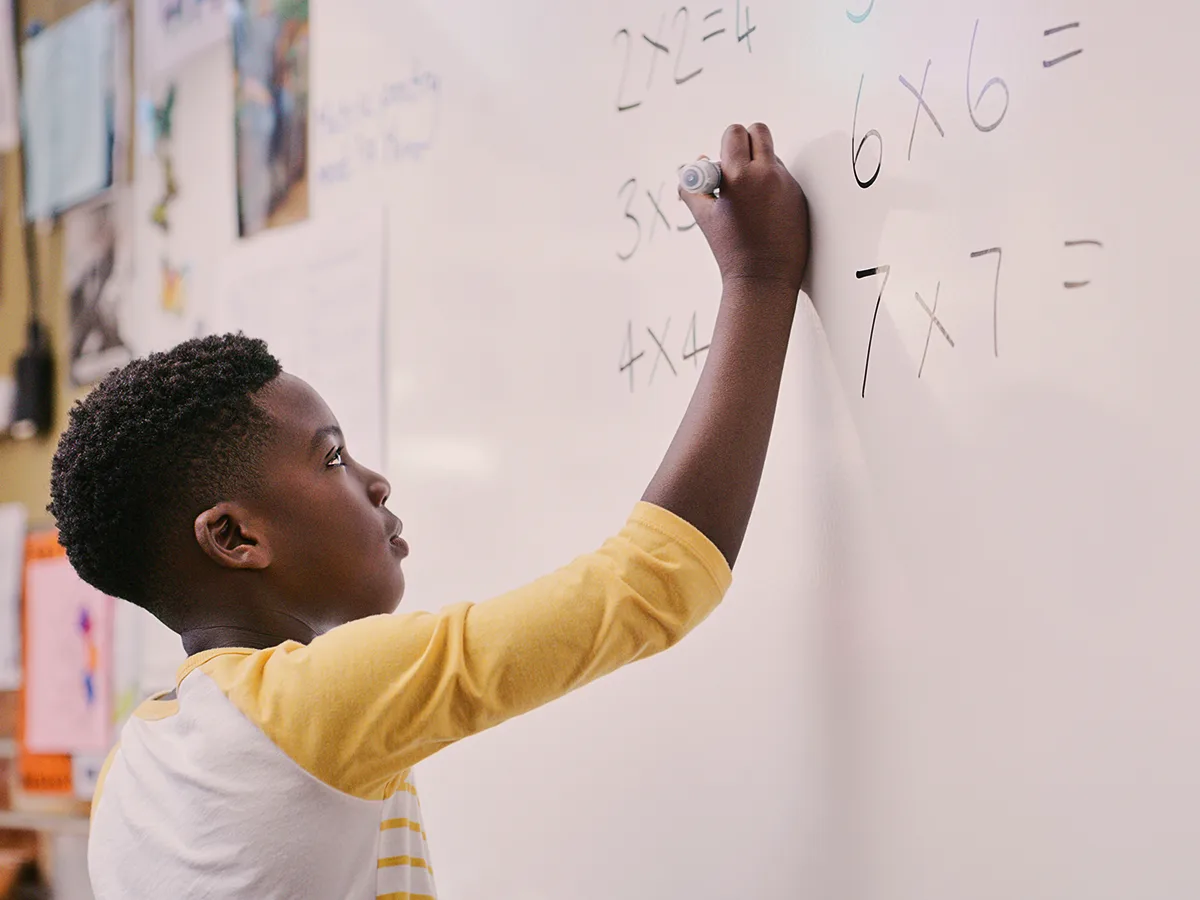Treatment for kids with dyscalculia

By Amanda Morin
Expert reviewed by Daniel Ansari, PhD

At a glance
There are many ways to help kids with dyscalculia build math skills.
Kids with dyscalculia can benefit from specialized instruction, especially in grade school.
There are no medications that treat dyscalculia, but medication could help kids deal with co-occurring issues like ADHD or anxiety.
Whether you know your child has dyscalculia or you think your child may have dyscalculia, there are ways to help. Professionals both in and out of school can work with your child to build math skills, like number sense. And there are accommodations that can make it easier for kids to work at the same level as their classmates.
There are no medications for dyscalculia. But medication can be a treatment for other issues, like ADHD and anxiety, that often co-occur with learning and thinking differences.
Learn about different strategies, supports, and therapies that can help kids with dyscalculia.
Instruction and support for kids with dyscalculia
There are no formal programs for teaching struggling math students like there are for struggling readers. But that doesn’t mean these kids can’t benefit from specialized instruction, especially in grade school. Certain strategies and approaches can be helpful for some kids.
One is multisensory instruction. This teaching approach uses sight, touch, hearing, and movement to give kids different ways to learn skills and understand concepts. Multisensory math techniques can help kids understand what the numbers and symbols represent. These techniques often teach math concepts in a logical way, with each new skill building on the previous one.
Using objects to see quantities and how they change provides a concrete way of understanding how certain math concepts work. It can also help kids develop number sense and make stronger connections to what they’re learning.
It’s important to help kids connect concrete items to the symbols that represent them. In other words, teach them that the numeral 5 represents five blocks or five claps, or any other multisensory tool.
Schools might use this type of instruction as part of special education. They also might use it as part of an educational intervention like . Some private math tutors or educational therapists might use these techniques, as well.
Specialized instruction isn’t the only way to support kids with dyscalculia. There are a number of accommodations they might get through an IEP or a 504 plan. Extended time and use of a calculator on tests are just two examples. Kids might also be allowed to use manipulatives like blocks.
There are also many assistive technology (AT) tools for math that kids can use at school and at home. These include graphing tools, math notation tools, and graphic organizers for math. There are also apps that work on basic number concepts.
Treatment for co-occurring issues
Many kids with dyscalculia also have other learning and thinking differences. Two that commonly co-occur are ADHD and dyslexia.
Treatment for ADHD or for dyslexia won’t necessarily improve math skills. But it can help with other difficulties that may be having an impact.
For instance, trouble with focus and self-control can make it hard for struggling math students to work on their challenges. Reducing ADHD symptoms through medication and behavior therapy might help. (ADHD medicines won’t help kids who don’t have ADHD).
Kids who have dyscalculia often have dyslexia as well. In fact, it’s estimated that 43 to 65 percent of kids who have math challenges also have reading challenges. For those kids, improving reading skills can make a big difference in their ability to do math work. That’s especially true for word problems.
It’s important for struggling math learners to have a full evaluation for learning differences. That’s the only way to see if they have dyscalculia, along with other learning differences, such as dyslexia. Different learning differences require different types of instruction. So when kids have more than one challenge, it’s important to have each challenge addressed separately.
Ways to help with dyscalculia at home
There are many ways you can help your child build math skills at home. Some can be worked into afterschool or weekend activities. You can even help your child learn while having fun playing board games that can help build math skills.
Download a dyscalculia fact sheet to give to teachers, friends, and family members so they can learn more about your child’s challenges. And read how a young adult manages anxiety that comes from her dyscalculia.
Key takeaways
Multisensory instruction can help kids with dyscalculia understand math concepts.
Treatment for co-occurring conditions, like ADHD and dyslexia, can make it easier for kids to learn math skills.
Accommodations, like using manipulatives and assistive technology, can also help kids with dyscalculia.

